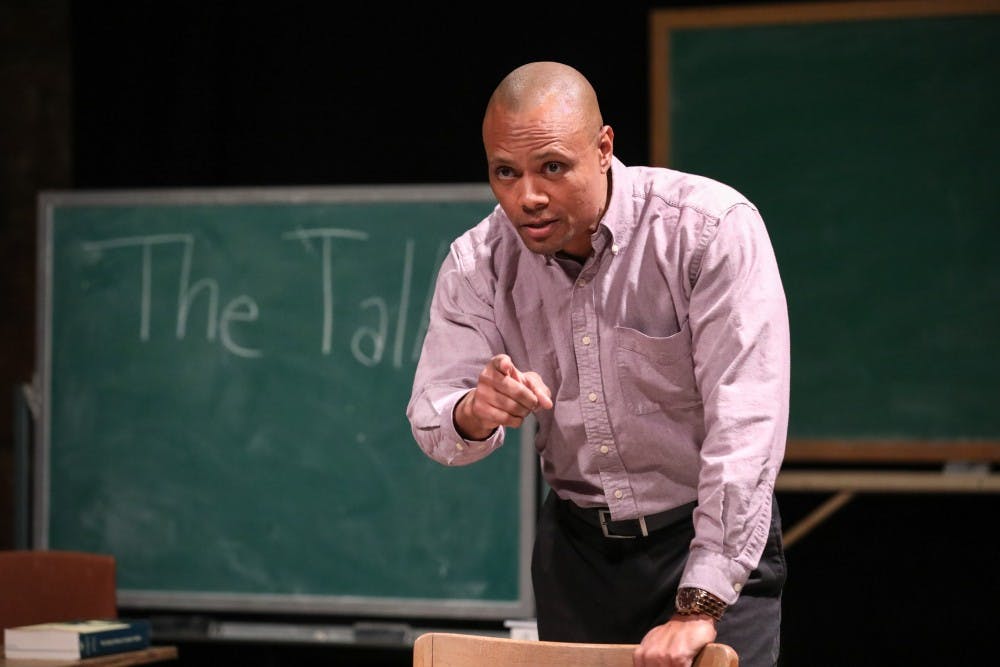CORRECTION: An earlier version of this article incorrectly stated that the inspiration for the piece came in 2015 when Kelly had to explain the Baltimore riots to his youngest son. The inspiration came when he had to explain the Baltimore riots to his oldest son. The story has been updated with the correct information. The Daily Tar Heel apologizes for this error.
One man will play twenty characters in an experiential performance called, "The Talk" about the conversation a Black man must have with his son about race in America.
Sonny Kelly, a UNC doctoral candidate, is the writer and star of "The Talk," which will run 16 times from Jan. 24 through Feb. 17. Showings are at 7:30 p.m. on Thursdays, 8 p.m. on Fridays and Saturdays and Sundays at 2 p.m. at Historic Playmakers Theater in Chapel Hil and the Durham Fruit and Produce Company in Durham.
The inspiration for the piece came to Kelly in 2015 when he had to explain the Baltimore riots to his oldest son.
“It was in the midst of that conversation that I thought to myself, wow, this is an amazing story,” Kelly said. “This is a painful truth.”
Kelly said he suffered a moment of “generational trauma” after having the same conversation about Blackness that his ancestors had to have for centuries.
Out of this emotion, Kelly created an eight-minute narrative piece about this conversation with his son. Since 2015, the story has developed into an hour-long, theatrical performance with the help of Joseph Megel, artistic director of StreetSigns Center for Literature and Performance.
The center is producing “The Talk” in association with Bulldog Ensemble Theater and the Department of Communication at UNC.
Elisabeth Lewis Corley, producer of "The Talk" and a member of the Board of Directors at StreetSigns, said she has seen the production in all its manifestations since 2015.




